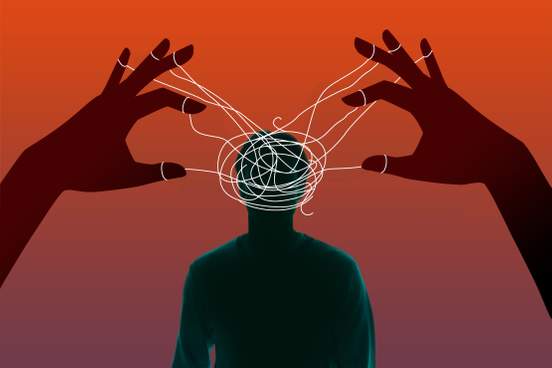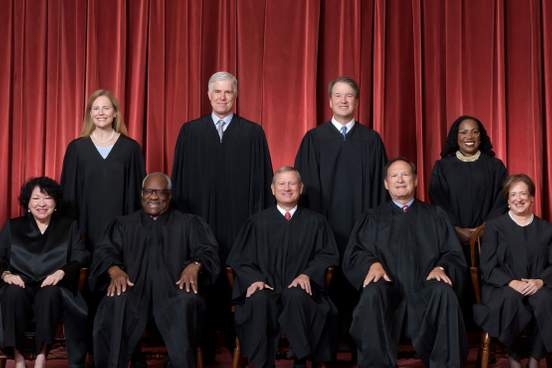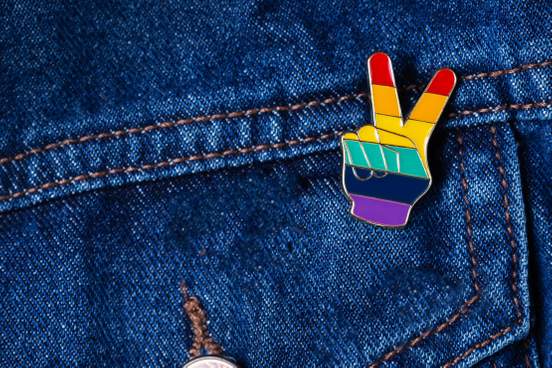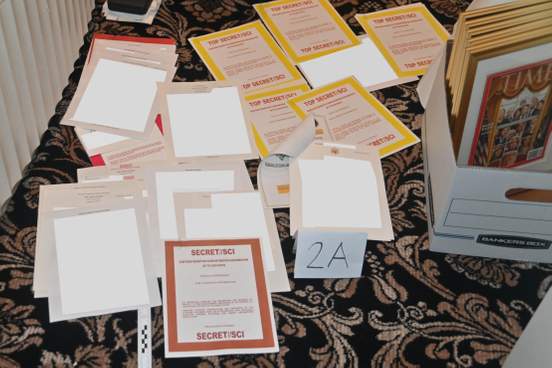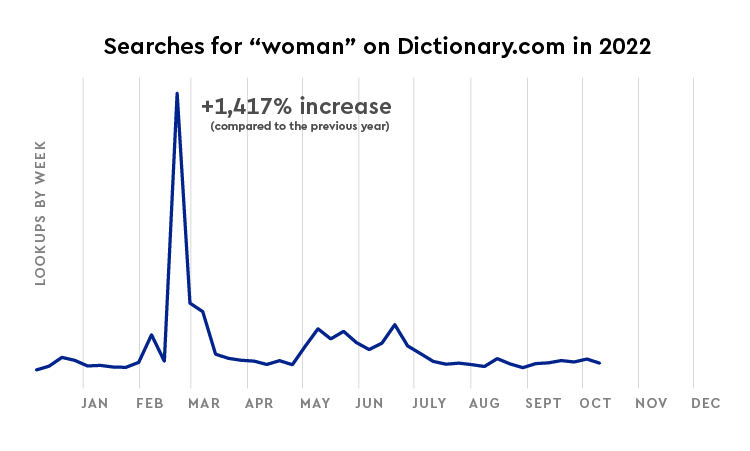The Oxford Corpus lists many vivid examples of goblin mode, including “Goblin mode is like when you wake up at 2am and shuffle into the kitchen wearing nothing but a long t-shirt to make a weird snack, like melted cheese on saltines”, as quoted in The Guardian newspaper. More recently, an opinion piece in The Times stated that “too many of us… have gone ‘goblin mode’ in response to a difficult year.”
Speaking at a special event to announce this year’s approach to selecting the Oxford Word of the Year, Ben Zimmer, American linguist and lexicographer, said: “Goblin Mode really does speak to the times and the zeitgeist, and it is certainly a 2022 expression. People are looking at social norms in new ways. It gives people the license to ditch social norms and embrace new ones.”
Since the launch of the people’s choice vote, ‘goblin mode’ has captured the attention of many communities online, having been a runaway favourite on social media and within online publications, such as PC Gamer, which urged followers to “put aside [their] petty differences and vote for ‘goblin mode’.”
Casper Grathwohl, President, Oxford Languages, says:
“We were hoping the public would enjoy being brought into the process, but this level of engagement with the campaign caught us totally by surprise. The strength of the response highlights how important our vocabulary is to understanding who we are and processing what’s happening to the world around us. Given the year we’ve just experienced, ‘Goblin mode’ resonates with all of us who are feeling a little overwhelmed at this point. It’s a relief to acknowledge that we’re not always the idealized, curated selves that we’re encouraged to present on our Instagram and TikTok feeds. This has been demonstrated by the dramatic rise of platforms like BeReal where users share images of their unedited selves, often capturing self-indulgent moments in goblin mode. People are embracing their inner goblin, and voters choosing ‘goblin mode’ as the Word of the Year tells us the concept is likely here to stay.”
In this age of misinformation—of “fake news,” conspiracy theories, Twitter trolls, and deepfakes—gaslighting has emerged as a word for our time.
A driver of disorientation and mistrust, gaslighting is “the act or practice of grossly misleading someone especially for one’s own advantage.” 2022 saw a 1740% increase in lookups for gaslighting, with high interest throughout the year.
Its origins are colorful: the term comes from the title of a 1938 play and the movie based on that play, the plot of which involves a man attempting to make his wife believe that she is going insane. His mysterious activities in the attic cause the house’s gas lights to dim, but he insists to his wife that the lights are not dimming and that she can’t trust her own perceptions.
When gaslighting was first used in the mid 20th century it referred to a kind of deception like that in the movie. We define this use as:
: psychological manipulation of a person usually over an extended period of time that causes the victim to question the validity of their own thoughts, perception of reality, or memories and typically leads to confusion, loss of confidence and self-esteem, uncertainty of one’s emotional or mental stability, and a dependency on the perpetrator
But in recent years, we have seen the meaning of gaslighting refer also to something simpler and broader: “the act or practice of grossly misleading someone, especially for a personal advantage.” In this use, the word is at home with other terms relating to modern forms of deception and manipulation, such as fake news, deepfake, and artificial intelligence.
The idea of a deliberate conspiracy to mislead has made gaslighting useful in describing lies that are part of a larger plan. Unlike lying, which tends to be between individuals, and fraud, which tends to involve organizations, gaslighting applies in both personal and political contexts. It’s at home in formal and technical writing as well as in colloquial use:
Patients who have felt that their symptoms were inappropriately dismissed as minor or primarily psychological by doctors are using the term “medical gaslighting” to describe their experiences and sharing their stories.— The New York Times, 28 March 2022
The “I’m sorry you feel that way” approach, along with avoiding an argument in lieu of admitting fault, is good old fashioned gaslighting. — Psychology Today, 29 March 2022
My Committee’s investigation leaves no doubt that, in the words of one company official, Big Oil is ‘gaslighting’ the public. These companies claim they are part of the solution to climate change, but internal documents reveal that they are continuing with business as usual. — Rep. Carolyn B. Maloney, Chairwoman of the Committee on Oversight and Reform, 14 September 2022
After their fight awkwardly cleared the daybed, the two parted ways and Genevieve caught Victoria up on the unexpected blowout. “He told me I’m gaslighting him. I’ve never even been told that in my life,” Gen said. “Yeah that’s a big word to use… He doesn’t know what that means. He’s just using a buzzword, he’s stupid. He’s dumb,” Victoria replied. — Nicole Gallucci, Decider (decider.com), 2 November 2022
English has plenty of ways to say “lie,” from neutral terms like falsehood and untruth to the straightforward deceitfulness and the formally euphemistic prevarication and dissemble, to the innocuous-sounding fib. And the Cold War brought us the espionage-tinged disinformation.
In recent years, with the vast increase in channels and technologies used to mislead, gaslighting has become the favored word for the perception of deception. This is why (trust us!) it has earned its place as our Word of the Year.
With the Russian invasion of Ukraine, countries including the U.S. and United Kingdom placed sanctions on Russian oligarchs and their families. Lookups for oligarch spiked 621% in early March 2022.
In its Greek roots oligarchy literally means “rule by the few.” In English the word can carry the same meaning, but it also has a meaning specific to Russia and other countries that succeeded the Soviet Union:
: one of a class of individuals who through private acquisition of state assets amassed great wealth that is stored especially in foreign accounts and properties and who typically maintain close links to the highest government circles
Throughout 2022 we have seen stories about various authorities seizing the yachts owned by these rich Russian allies of President Putin.
The war in Ukraine has also driven spikes in lookups for sanction, Armageddon, and conscript.
The World Health Organization uses Greek letters (alpha, beta, gamma, delta) to designate variants of the COVID virus. In November 2021, it used omicron, the 15th letter of the Greek alphabet, to name the most recent version of the virus. That variant became one of the most widespread forms of COVID in 2022.
Major spikes in lookups accompanied a surge in cases in early January, and following reports in November that the omicron booster was not significantly more effective than the older vaccines.
Endemic, used to describe a disease that is constantly present in a particular place, increased 874% in January.
Photo: Fred Schilling, Collection of the Supreme Court of the United States
Lookups for codify increased 193% for the year in 2022, driven by the Supreme Court’s decision to overturn Roe v. Wade on June 24th.
Codify refers to a process by which Congress can make laws; the word literally means “to make a code” with code here essentially a synonym of “law.” Code ultimately comes from the Latin word codex, meaning “trunk of a tree,” referring to documents on wooden tablets.
There were several notable spikes in lookups of codify:
May 3 (leak of the draft of the Dobbs v. Jackson decision): 5347%
June 24 (the decision announcement): 1293%
June 30 (President Biden’s endorsement of ending the filibuster in order to codify the right to abortion): 8304%
We also saw spikes in other lookups connected to this story: abortion lookups were higher in June, and both take for granted and mercurial, used to describe Chief Justice John Roberts, were higher in May.
The acronym LGBTQIA adds some letters to the older and more familiar abbreviations LGBT and LGBTQ, with the full abbreviation standing for “lesbian, gay, bisexual, transgender, queer/questioning (one’s sexual or gender identity), intersex, and asexual/aromantic/agender.”
The abbreviation was looked up frequently (up 1178%) during the entire month of June, Pride month, when the rights, equality, and culture of LGBTQ people are celebrated around the world. Lookups also spiked in late November after the shooting at a gay nightclub in Colorado Springs. With LGBTQ and the longer acronym both used in news stories about the event, interest in the difference between the two was apparent. Overall, LGBTQIA saw an 800% increase over 2021.
In June, when a Google engineer claimed the company’s AI chatbot had developed a human-like consciousness, lookups of sentient increased 480%. The claim was vigorously denied by Google, and the engineer was placed on paid leave, but the question of how human-like AI is, or will be, became a topic of much interest.
Loamy
2022 was also the year that many people discovered the joy in puzzling out five-letter words: both Wordle (in which the puzzler has six tries to identify one word) and Quordle (nine guesses to identify four words) sent people to the dictionary, with numerous seldom-searched-for words tapped out on keyboards everywhere. When loamy (“consisting of loam, a soil consisting of a friable mixture of varying proportions of clay, silt, and sand”) was a Quordle answer on August 29th, the entry surged 4.5 million percent. In May, the Quordle answer voilà inspired a lookup spike of 2.5 million percent.
Photo: United States Department of Justice
When the FBI executed a search warrant at former president Donald Trump’s Mar-a-Lago home in early August, the event was labeled by some as a “raid,” sending lookups of raid up 970%. The relevant meaning of raid, “a sudden invasion by officers of the law,” was used to suggest that the search was unfair. In late August the Justice Department responded to that charge by releasing a redacted affidavit, sending lookups of redact and redacted up 1000%.
For the remainder of the year, this story created additional spikes in lookups. The large quantity of documents—33 boxes’ worth—was often called a “trove” by journalists, a trove being a valuable collection, or more generally a large amount of something collected. Trove was up 344% for the year. Defenders of the former president accused the government of behaving like a banana republic—that is, like a small and despotically run country, driving a lookup increase of of 3750%.
The death of Queen Elizabeth II was the end of an era, and the focus of international attention and fascination. The public’s interest in the monarchy is often connected with the ceremonies and rituals of the institution, including coronations, royal weddings—and funerals. Among the most looked-up terms following the Queen’s death was pomp and circumstance, as images of processions and pageantry were broadcast around the world. Monarch itself was also looked up frequently.
Announcements of the Queen’s death acknowledged the new King and his wife, Camilla, referred to by her proper title of Queen Consort, and that term quickly shot to the top of lookups. Since England had not had a king since 1952, it’s understandable that this title was unfamiliar. Camilla is not the successor to the Queen, but is instead the wife of the reigning king. A parallel title for the husband of a reigning queen, prince consort, was the title held by the late Prince Philip.
Another royal milestone sent people to the dictionary in May and June to look up jubilee, meaning “a special anniversary.” The term described the official celebrations for Queen Elizabeth’s unprecedented 70th anniversary on the throne.

When we looked at our data to see which words had been searched for the most in 2022, homer immediately stood out. It was looked up more than 79,000 times this year, and an amazing 65,401 of those views happened on May 5. But why were so many of our users interested in this word, and what does it mean?
The spike in searches for homer was caused by players of Wordle, a popular online word game in which users have six chances to guess a five-letter English word. When homer was the answer for May 5, speakers of American English immediately recognized it as an informal word for a home run in baseball. However, many players outside the US had not heard this word before. Huge numbers of players expressed their frustration and annoyance on social media, but many also turned to the Cambridge Dictionary to find out more.
Throughout 2022, our team saw bursts of searches for many five-letter words that were also Wordle answers. This “Wordle effect” attracted users not only to common words like humor (the American English spelling of humour) but also to less familiar ones like caulk, tacit, and bayou. People across the world enjoy the shared experience of playing the game, and learning about unusual or unfamiliar words (or complaining about them) seems to be part of the fun. The dictionary team felt that choosing homer as the Word of the Year 2022 represented not only the enjoyment that so many of our users have found in being playful with language, but also the challenges of learning English in an increasingly connected world. Playing an online game such as Wordle can bring us together with people from all across the globe, but the differences between varieties of English can cause confusion in these international conversations – until we learn more about them!
The Cambridge Dictionary is a great tool for finding out more about words like homer that are used in one variety of English but not another. It covers both British and American English (including the pronunciation of both), and uses labels to show you which words are used only in British English or only in American English. You can even change which variety of English is used in the definitions and example sentences in the “Choose your language” menu; just click the globe icon at the top right of the page.
We have a lot more information for you about our Word of the Year 2022, including analysis from Cambridge Dictionary lexicographers and a video from English language expert Professor Lynne Murphy, the author of Prodigal Tongue: The Love-Hate Relationship Between American and British English.
Click here to find out more about our Word of the Year, or read about previous Words of the Year.
And, if you’re a Wordle player, try our new Cambridge Dictionary +Plus word list of Top five-letter words.
Do you enjoy word games? Do you prefer to use British or American English (or something else)? Had you ever heard our Word of the Year winner, homer, before? What do you think about it? Share your thoughts in the comments – we’d love to hear from you!
Оксфордский словарь назвал словом года выражение «режим гоблина»

В 2022-м словом года по версии Оксфордского словаря стало выражение «режим гоблина», обозначающее «тип поведения, для которого характерна беззастенчивая снисходительность к себе, лень, неряшливость или жадность». По данным Oxford Languages, словосочетание используется для описания настроения людей, которые «отвергли идею возвращения к нормальной жизни» после пандемии или «восстали против недостижимых эстетических стандартов и образа жизни, демонстрируемых в социальных сетях»
По версии Оксфордского словаря, словом 2022 года стало сленговое выражение goblin mode («режим гоблина»). Об этом сообщили представители издательского отдела Oxford Languages Оксфордского университета на официальном сайте.
«Режим гоблина» — сленговое выражение, <…> часто используемое в значении «тип поведения, для которого характерна беззастенчивая снисходительность к себе, лень, неряшливость или жадность, как правило, для него также свойственен отказ от социальных норм или ожиданий», — поясняют представители Оксфордского словаря.
По данным Oxford Languages, словосочетание впервые было употреблено в Twitter в 2009 году, но стало популярным в феврале 2022 года на фоне снятия в большинстве стран мира ограничений, связанных с пандемией COVID-19. По оценке экспертов словаря, на данный момент выражение используется для описания «настроения людей, которые отвергли идею возвращения к нормальной жизни или восстали против недостижимых эстетических стандартов и образа жизни, демонстрируемых в социальных сетях».
В качестве примера употребления выражения представители Oxford Languages приводят цитату из материала The Guardian: «Режим гоблина похож на тот случай, когда вы просыпаетесь в 2 часа ночи и шаркаете на кухню в одной длинной футболке, чтобы приготовить странную закуску, например плавленый сыр на соленом хлебе».
В 2022 году слово года по версии Оксфордского словаря впервые было выбрано путем общественного голосования. Помимо «режима гоблина» в голосовании участвовали слово metaverse («метавселенная»)и хештег #IStandWith («Я поддерживаю…»), занявшие второе и третье место соответственно. Как отмечают в Oxford Languages, частотность использования хештега #IStandWith выросла в марте этого года на фоне ситуации на Украине. В 2021 году словом года представители Оксфордского словаря выбрали vax («вакцинация»)
These are the words of the year, according to dictionaries
Dec 20, 2022

For the first time ever, the Oxford English Dictionary’s (OED) word of the year was left to the public to decide. Image: Unsplash/Syd Wachs
Share:
Don’t miss any update on this topic
Create a free account and access your personalized content collection with our latest publications and analyses.
License and Republishing
World Economic Forum articles may be republished in accordance with the Creative Commons Attribution-NonCommercial-NoDerivatives 4.0 International Public License, and in accordance with our Terms of Use.
The views expressed in this article are those of the author alone and not the World Economic Forum.
Share:
Global Agenda
The Agenda Weekly
A weekly update of the most important issues driving the global agenda
“Goblin mode” has been chosen by the public as the 2022 Oxford word of the year. The term, which refers to “a type of behaviour which is unapologetically self-indulgent, lazy, slovenly, or greedy, typically in a way that rejects social norms or expectations”, has become the first word of the year to have been decided by public vote.
Given a choice of three words (or phrases/hashtags – “word” is defined fairly loosely), narrowed down by lexicographers from Oxford University Press (OUP), more than 340,000 English speakers around the world cast their vote.
“Metaverse” was the second choice, followed by “#IStandWith”. Goblin mode was a landslide victory: it was selected by 318,956 people, making up 93%of the overall vote.
The president of Oxford Languages, Casper Grathwohl, said that while he and his colleagues were “hoping the public would enjoy being brought into the process”, the level of engagement had caught them “totally by surprise”.
“Given the year we’ve just experienced, ‘goblin mode’ resonates with all of us who are feeling a little overwhelmed at this point”, he added. “It’s a relief to acknowledge that we’re not always the idealised, curated selves that we’re encouraged to present on our Instagram and TikTok feeds. This has been demonstrated by the dramatic rise of platforms like BeReal where users share images of their unedited selves, often capturing self-indulgent moments in goblin mode.”
The winning term was first seen on Twitter in 2009, but went viral on social media in February 2022 after being tweeted in a mocked-up headline.
Goblin mode “embraces the comforts of depravity”, wrote the Guardian technology reporter Kari Paul in March, who attributed the rise in the phrase’s usage to “the pandemic’s third year and the feared launch of World War Three”.
The hashtag #goblinmode on TikTok is often used as a rebuff of the “that girl” trend, which is all about being the “best version of yourself”, ie getting up early to exercise, performing elaborate skincare routines and drinking organic green smoothies – and, of course, posting about all of this on social media.
The OUP noted that the usage of goblin mode rose in the first half of 2022, when Covid restrictions were being eased in many countries. “Seemingly, it captured the prevailing mood of individuals who rejected the idea of returning to ‘normal life’, or rebelled against the increasingly unattainable aesthetic standards and unsustainable lifestyles exhibited on social media.”
The American linguist and lexicographer Ben Zimmer said: “Goblin mode really does speak to the times and the zeitgeist, and it is certainly a 2022 expression. People are looking at social norms in new ways. It gives people the licence to ditch social norms and embrace new ones.”
Goblin mode joins previous Oxford words of the year “vax” (2021), “climate emergency” (2019), and “selfie” (2013). Other dictionaries have also selected 2022 words of the year: Collins chose “permacrisis”, while Cambridge Dictionaries went for “homer,” which went viral in May thanks to the game Wordle.
7 min
Created: December 6th, 2022Last updated: March 31st, 2023
Contents
If you could pick one word for 2022, what would it be? Twitter, Elon Musk, Ukraine, TikTok, or Queen? You can get lost in your thoughts for a whole day choosing among thousands and thousands of words, but the ultimate choice was already made. Yes, it is crazy because the year hasn’t even finished yet! But it’s not an issue for the world’s biggest and most trusted dictionaries. They all decided on the 2022 word of the year at the end of November. And if you think that the dictionaries agreed on the same 2022 word, you couldn’t be more naïve.
Merriam-Webster, Cambridge, Oxford, and Collins dictionaries have their criteria for determining their 2022 word of the year. Nonetheless, all the chosen words have something in common. They all reflect on the world’s problems and most discussed and searched topics for the past 12 months. That is why it would be wise not to limit you to one word of the year 2022 and enlighten you with every single one. So, prepare to expand your vocabulary with the hottest words in 2022!
Word For 2022: Merriam-Webster Dictionary Choice
The American Merriam-Webster dictionary claims «gaslighting» to be the word of 2022. Why? The number of searches of the term on the official Merriam-Webster website increased by 1,740 percent this year.
So, what does the term «gaslighting» mean? According to the definition given by Merriam-Webster dictionary, gaslighting is «the act or practice of grossly misleading someone, especially for one’s own advantage.»
For the first time, the Merriam-Webster word of the year 2022 was mentioned in the title of a play in 1938 and adopted film starring Angela Lansbury, Ingrid Bergman, and Charles Boyer called «Gaslight.» The story focus on the man who is trying to convince his wife that she is insane by telling her certain things that happened never took place.
If people started using the word «gaslighting» so long ago, why did it become so popular in 2022? It’s a good question. The reason is a rising interest in analyzing relationships through all sorts of media – tv, print, and digital. People try to give definitions to different behavior models in relationships to make it easier to recognize them and protect yourself from their negative influence.
The other popular words in 2022, according to Merriam-Webster dictionary, are «oligarch,» which attracted attention after Russia’s full-scale invasion of Ukraine, «Omicron,» a new milder version of the COVID-19, and «Queen Consort,» the wife of Britain’s King Charles, Camilla, became after death of Elizabeth II.
2022 Word Of The Year: Cambridge Dictionary Winner
Since we are moving forward to the British dictionary, it is incredibly bizarre to realize that the word of the year 2022 chosen by the Cambridge dictionary comes from American English. That’s not a joke; we swear to all gods out there there is a logical explanation.
So, have you ever heard of the popular online game Wordle? It’s a game where people are given one five-letter word daily to guess. Then, they have five tries to fill the gaps with the correct term. And, on May 5, game users outside of the USA struggled to guess the word «homer.» And when people finally guessed it, they couldn’t understand what that was, so they went straight to the Cambridge dictionary. As a result, the number of word searches went up to 65,000, which made it the 2022 word of the year.
According to the Cambridge dictionary, «homer» is a short version of homerun which means «a point scored in baseball when you hit the ball, usually out of the playing field, and are able to run around all the bases at one time to the starting base.»
The game Wordle made people look up lots of different five-letter words. Except for «homer,» the most popular words in 2022 were caulk, tacit, humor, and bayou. And the term «humor» played a bad joke with people who don’t speak American English because it should be written in six letters, «humour» in the British spelling.
5
Word For The Year 2022: Oxford Dictionary Number One
When the first two dictionaries chose a word for the year 2022 by analytical data, for the first time, the Oxford dictionary let the English speakers make the choice of the Word of the Year.
First, Oxford’s editors picked candidates for voting by analyzing statistics in the Oxford English Corpus. Then, they gave 300,000 people two weeks to vote for their choice. And after all, Oxford Languages announced that the 2022 word of the year is the slang term «goblin mode. «
According to Oxford Languages, it means «a type of behaviour which is unapologetically self-indulgent, lazy, slovenly, or greedy, typically in a way that rejects social norms or expectations.»
Even though it made its first appearance on Twitter in 2009, it deserves to be the word of the year in 2022 since it went viral on social media in February. «Goblin mode» turned out to be a perfect description for people who didn’t want to go back to «normal» life after COVID-19 restrictions and expressed it on social media.
The second and the third places in the voting went to «metaverse» and «#IStandWith.»
Word Of The Year 2022: Collins Dictionary Champion
It may seem peculiar, but Collins Word of the Year 2022 is actually a new term for CollinsDictionary.com. So, if you have never heard of «permacrisis» before, there is no need to worry; you are not alone in this. Instead, let’s get more familiar with this term.
According to Collins dictionary, a permacrisis is «an extended period of instability and insecurity, esp one resulting from a series of catastrophic events.» Unfortunately, due to the last events in the world, this term perfectly describes the year 2022.
The other words on this year’s shortlist also refer to the significant events in 2022, such as the Russian war in Ukraine and the UK economic crisis. The list includes the following words «Kyiv,» «partygate,» «splooting,» «warm bank,» «Carolean,» «lawfare,» «quiet quitting,» «sportswashing,» and «vibe shift.»
How To Learn Words Of The Year With Promova
After reading this article, it may seem that grasping all the English vocabulary is unreal. And that is true. Even English native speakers struggle to understand complicated phrases or words from others varieties of the English language. But learning a language is a life-long process, so you should consider it a fun time, not a punishment or a goal that can be achieved quickly.
However, you should proceed to expand your vocabulary in English if you want to reach fluency. For that matter, you can learn new English words every day on the Promova app. Moreover, we regularly create up-to-date sets with adorable flashcards to help you memorize words in an easy and gamified way.
Also, you start working on your English vocabulary by signing up for the Promova tutoring program. The language learning platform allows you to join group classes by level or go for individual tutoring. In both cases, you will get a personalized learning plan with the best materials and guided practice with the certified native-level tutor of your choice.
Working on your English with Promova will save you from guessing what the next word of the year means; you will know it.
Conclusion
The word of the year is always connected to the most trending events in the world. People look up for English words to better understand what is going on in the news or social media. That is how they become words of the year. The interest in certain English words demonstrates that people are eager to learn more to stay up to date. And because the Internet mostly runs in English, it is vital to keep learning new words daily. You can never be sure that some word from the early 20 century won’t become trending one morning. To memorize more relevant words for this year, check our 14 Popular Words 2022 That You Have Often Heard article.
It’s one of the oldest words in the English language. One that’s fundamental not just to our vocabulary but to who we are as humans. And yet it’s a word that continues to be a source of intense personal importance and societal debate. It’s a word that’s inseparable from the story of 2022.
Dictionary.com’s Word of the Year is woman.
noun
1. an adult female person.
Why we chose woman as the 2022 Word of the Year
This year, searches for the word woman on Dictionary.com spiked significantly multiple times in relation to separate high-profile events, including the moment when a question about the very definition of the word was posed on the national stage.
Our selection of woman as our 2022 Word of the Year reflects how the intersection of gender, identity, and language dominates the current cultural conversation and shapes much of our work as a dictionary.
During the height of the lookups for woman on Dictionary.com in 2022, searches for the word increased more than 1,400% (a massive leap for such a common word). Subsequent spikes eventually resulted in double the typical annual search volume for the word.
The biggest search spike started at the end of March, during a confirmation hearing for Judge Ketanji Brown Jackson, who in April became the first Black woman to be confirmed as a US Supreme Court justice. Specifically, the surge in lookups came after she was asked by Senator Marsha Blackburn to provide a definition for the word woman.
It was a rare case of not just a word in the spotlight, but a definition. We at Dictionary.com weren’t the only ones to take notice. The prominence of the question and the attention it received demonstrate how issues of transgender identity and rights are now frequently at the forefront of our national discourse. More than ever, we are all faced with questions about who gets to identify as a woman (or a man, or neither). The policies that these questions inform transcend the importance of any dictionary definition—they directly impact people’s lives.
Can you provide a definition for the word woman?
—Question posed by Senator Marsha Blackburn to Judge Ketanji Brown Jackson during her Supreme Court confirmation hearing in March 2022
In May, a leak revealed the Supreme Court’s decision to overturn Roe v. Wade, and lookups for woman surged again (along with significant increases in searches for related terms like autonomy). Further search spikes occurred again in June and July.
In June, the court formally issued its ruling on Dobbs v. Jackson Women’s Health Organization, officially overturning Roe. The historic decision was immediately considered—across the political spectrum—to be one of the most consequential in decades, socially and politically.
Unsurprisingly, it resulted in both polarization and galvanization. That dynamic played out in November’s midterm elections, which upended trends and expectations. The outcome has been attributed in part to an electorate, and particularly women, voting in reaction to the Dobbs ruling. The election also added to the ranks of the nation’s women governors, resulting in what will be a record number of women—12—serving as governors in 2023.
The etymology of «woman»
The meaning is actually embedded right there in the roots of the word. Woman comes from the Old English wīfman, which combines the words wīf and man. The Old English word wīf meant “female” or “woman,” and is the source of the word wife (which originally could refer to a woman regardless of marital status). The original meaning of man, meanwhile, was simply “person.” The first records of the word woman in English come from as early as the year 900.
Women were also prominent in several of 2022’s other key moments and the discourse around them:
- In September, the death of Queen Elizabeth II captured the world’s attention in a way that few other things do, prompting discussion and debate about the life and the legacy of the woman who became one of the world’s longest reigning monarchs. (Incidentally, the word queen derives from a word simply meaning “woman.”)
- In Iran, a 22-year-old woman, Mahsa Amini, died in the custody of the government’s so-called morality police, sparking outrage and a protest movement that has been primarily led by women, who are demanding greater freedom and autonomy.
- The year was full of notable stories in women’s sports, including superstar Serena Williams’ announcement that she will be “evolving away from tennis”; ongoing debates about transgender athletes; the equal pay settlement reached by the US Women’s National Soccer Team; and WNBA star Brittney Griner’s internationally condemned imprisonment by Russia and her subsequent release.
The utter variety of all these events is a reminder that one word can never sufficiently summarize or encapsulate an entire year, especially a year as relentlessly eventful, inflammatory, and inflationary as 2022. Nevertheless, 2022 will be remembered in part for its impact on women, and for women’s impact on a changing world. From our perspective as observers and recorders of language change, the word woman is a prime example of the many gender terms undergoing shifts in how and to whom they’re applied.
Our core work is making sure that the dictionary reflects how people use words in the real world. Our entries for woman and the inextricably linked word female do this by accounting for the many facets of such terms—biological, personal, and linguistic.
But the dictionary is not the last word on what defines a woman. The word belongs to each and every woman—however they define themselves.
The candidates on our Word of the Year short list reflect the role of Dictionary.com as a living resource for making sense of the terminology of complicated times. These five terms tell a story of some of the year’s most significant events and trends.
🇺🇦 [Ukraine flag emoji]
Russia’s invasion of Ukraine, the ongoing war, its countless injustices and tragedies, and the perseverance of Ukraine’s people all weigh heavily on our collective memory of 2022. One of the most visible and simple ways of expressing solidarity with the Ukrainian people has been with the Ukraine flag emoji 🇺🇦 (along with the Sunflower emoji 🌻). It’s another prominent example of emoji as a form of efficient and meaning-packed expression.
Terms related to the war and its many aspects also became some of the year’s top searches, including oligarch and sanction.
inflation
Inflation was inescapable this year, both in terms of its hard-felt effects and as a topic of discussion and debate. Our lexicographers have taken particular note of the linguistic trend—one they expect to continue—of related compound forms, including established, revived, and newly emerging terms: shrinkflation, skimpflation, greedflation, stagflation, hyperinflation, superinflation, shadow inflation, and wage-push inflation.
quiet quitting
Several terms related to paradigm shifts in the workplace and the workforce have recently entered our vocabulary or become more commonly used, including antiwork and Lie Flat. But one that seemed to especially resonate with people this year is quiet quitting, the informal term for the practice of (secretly) reducing the amount of effort one devotes to their job.
democracy
Among the top 50 lookups at Dictionary.com this entire year was the word democracy, which came to the forefront in 2022 particularly amid discussion of its precariousness.
Wordle
It’s especially interesting to us, in the word business, that the one thing that seemed to have the ability to bring everyone together in 2022 was a simple word game. Not only did we add the trademarked term Wordle itself to the dictionary this year, we also continue to see a high frequency of lookups related to the game’s answers. This is especially the case for the stumpers—i.e. the ones that take more than a trice to figure out, such as knoll, atoll, tacit, and trope. Fittingly, our Word of the Year, woman, is a five-letter word.
Which Wordle answer stumped you this year? See if it’s on our list of 2022’s top Wordle answer lookups.
Что оказалось важнее всего для сотен тысяч людей по всему миру?
5 декабря 2022
Филологи из Оксфордского университета назвали главное слово 2022 года. Оно впервые определено методом общественного опроса. Уточним, что в расширенное понятие слова входят и сочетания лексем, и даже хэштеги.
Прежде чем узнать о главном слове 2022 года, попробуйте угадать его из трех вариантов.
хэштег #istandwith (я поддерживаю)
Более 300 тысяч носителей английского языка выбрали «режим гоблина» как главное слово уходящего 2022 года. На втором месте в опросе оказалась «метавселенная», а на третьем — хэштег #istandwith.
Что такое режим гоблина?
Режим гоблина — это тип поведения, для которого характерно потакание своим низменным желаниям и отвергание принятых в обществе норм поведения. Люди, которые включают этот «режим», часто бывают неряшливы, грубы, вызывающе себя ведут.
«Приятно осознавать, что мы не всегда являемся идеализированными личностями, которых нам рекомендуют представлять в наших лентах в социальных сетях», — прокомментировал новое слово года президент Oxford Languages Каспер Гратвол.
В качестве примера лингвист упомянул рост популярности таких платформ, как BeReal, «где пользователи делятся своими неотредактированными изображениями, часто снимая моменты потакания своим желаниям в режиме гоблина».
В Оксфордском университете отметили: люди стали чаще использовать выражение «режим гоблина» в первой половине 2022 года, когда во многих странах были ослаблены ковидные ограничения.
Ученые предполагают, что слово года отражает настроение людей, которые отвергли идею возвращения к «нормальной жизни» или восстали против все более недостижимых эстетических стандартов, демонстрируемых в социальных сетях.
Ранее в США издатели авторитетного словаря Merriam-Webster назвали словом 2022 года газлайтинг. Так называют действия людей, цель которых — заставить жертву глубоко сомневаться в себе, обесценить ее достижения и поступки в ее собственных глазах.
В предыдущие годы Оксфорд называл главным словом вакцину, чрезвычайную ситуацию с климатом, смеющийся до слез смайлик, вейп, селфи и постправду. А 2020-й оказался так сложен и неоднозначен, что в каждой англоговорящей стране слово было свое.
Подробнее о словах года за последние 10 лет читайте в материале «Вокруг света».
По материалам The Guardian.
World
December 5, 2022 / 9:43 AM
/ CBS News
Oxford Dictionary’s 2022 word of the year
Oxford English Dictionary reveals its 2022 word of the year: «Goblin mode»
01:05
As 2022 nears its end, dictionaries are chiming in on the word that best that encompasses the year. And according to Oxford Dictionaries, «goblin mode» is the 2022 word of the year. The company annually chooses a word of the year, but this time, it let the public cast votes to choose among three finalists. Over two weeks, more than 300,000 people weighed in, and on Monday, the dictionary announced goblin mode was the winner.
It defines «goblin mode» as a slang term for «a type of behavior which is unapologetically self-indulgent, lazy, slovenly, or greedy, typically in a way that rejects social norms or expectations.»
Oxford Dictionaries says its annual word of the year reflects the mood of the past 12 months and that it also seeks to choose something with the potential for lasting cultural significance. Past Oxford words of the year include «vax» in 2021, «climate emergency» in 2019, and «selfie» in 2013.
«Goblin mode» got its start on Twitter in 2009, but the term went viral in February 2022. The expression’s rise in in popularity coincided with the easing of COVID restrictions, as more people started venturing out of their homes. Some rejected or struggled with the return to normalcy and continued live in their lives unapologetically in goblin mode.
«Goblin Mode really does speak to the times and the zeitgeist, and it is certainly a 2022 expression. People are looking at social norms in new ways. It gives people the license to ditch social norms and embrace new ones,» American linguist and lexicographer Ben Zimmer said at an event for Oxford Dictionaries.
While it is a casual term often seen on social media, it has made its way into major news publications too, like when The Times of London published an opinion piece in which the author said too many people had embraced goblin mode «in response to a difficult year.»
The second place winner in Oxford’s word of the year vote was «metaverse,» describing «a (hypothetical) virtual reality environment in which users interact with one another’s avatars and their surroundings in an immersive way, sometimes posited as a potential extension of or replacement for the internet, World Wide Web, social media, etc.» according to the dictionary. Though the word metaverse has been around since the early 1990s, it really took off in the past year as Facebook attempted to rebrand itself as a metaverse company.
In third place: «#IStandWith,» a hashtag used to «express solidarity with a specific cause, group, or person,» the dictionary says.
Oxford is just one of several major dictionary companies vying to define the word of the year. Last month, Merriam-Webster selected «gaslighting» as its 2022 word of the year, and Collins English Dictionary went with «permacrisis.»
Caitlin O’Kane
Caitlin O’Kane is a digital content producer covering trending stories for CBS News and its good news brand, The Uplift.
Thanks for reading CBS NEWS.
Create your free account or log in
for more features.
Please enter email address to continue
Please enter valid email address to continue

